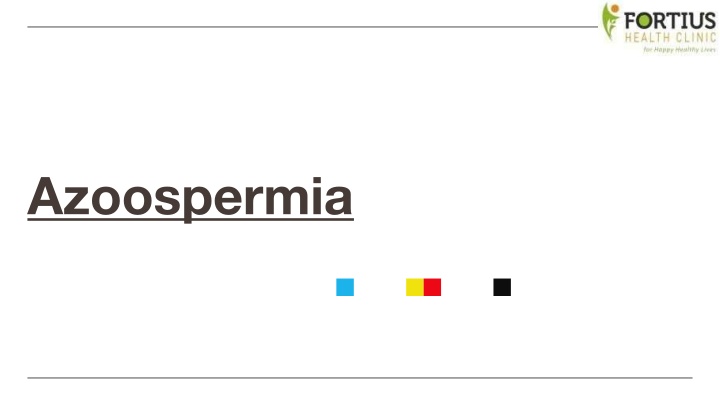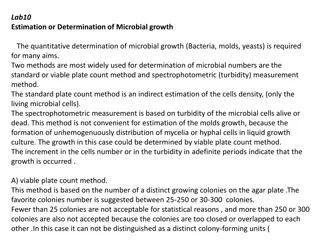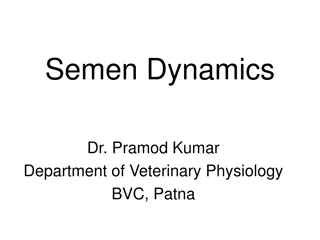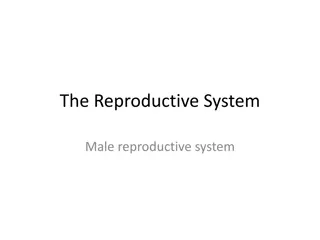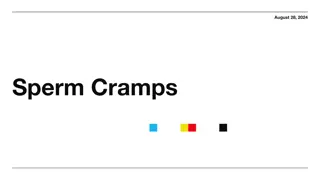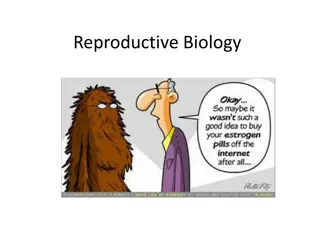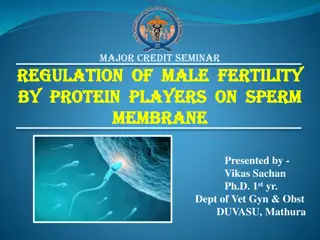What is Azoospermia and How to Treat Them (Zero Sperm Count)
Azoospermia is a male infertility condition where the sperm count is zero in the semen. This blog post explains the symptoms, types, and treatments of azoospermia. For more info Visit: // /blog/azoospermia-symptoms-types-and-treatments/
Download Presentation

Please find below an Image/Link to download the presentation.
The content on the website is provided AS IS for your information and personal use only. It may not be sold, licensed, or shared on other websites without obtaining consent from the author.If you encounter any issues during the download, it is possible that the publisher has removed the file from their server.
You are allowed to download the files provided on this website for personal or commercial use, subject to the condition that they are used lawfully. All files are the property of their respective owners.
The content on the website is provided AS IS for your information and personal use only. It may not be sold, licensed, or shared on other websites without obtaining consent from the author.
E N D
Presentation Transcript
Introduction to Azoospermia Definition and Significance Azoospermia is defined as the complete absence of sperm sperm in the ejaculate, a condition that significantly contributes to male infertility. It accounts for approximately 10-15% of male infertility cases, highlighting its importance in reproductive health discussions. The diagnosis of azoospermia often occurs when couples experience difficulties conceiving, making awareness and understanding crucial for treatment.
Types of Azoospermia Obstructive Azoospermia Sperm production is normal but blocked from entering the semen. Causes include absence of the vas deferens, previous surgeries, and infections. Typically involves a blockage preventing sperm transport. Non-Obstructive Azoospermia Testicles fail to produce sufficient sperm or any sperm at all. Causes include hormonal imbalances, genetic disorders, and testicular damage. Can result from conditions like Klinefelter syndrome and varicocele.
Causes of Non-obstructive Azoospermia Genetic Factors Hormonal Imbalances Lifestyle Influences Genetic disorders, particularly Klinefelter syndrome, can disrupt sperm production. These conditions often result in abnormal chromosomal patterns that hinder normal testicular function. Hormonal issues, such as low Lifestyle choices, including excessive alcohol consumption, drug use, heat exposure from saunas, and obesity, can negatively affect sperm production and overall reproductive health. luteinizing hormone testosterone levels or imbalances in luteinizing hormone (LH) and follicle- stimulating hormone (FSH), can impair testicular function and reduce sperm production. follicle-stimulating hormone follicle-stimulating hormone
Symptoms and Diagnosis Symptoms of Azoospermia Azoospermia typically presents no noticeable symptoms until conception attempts fail. Hormonal issues may lead to decreased libido, breast enlargement, or reduced body hair. Semen Analysis Semen analysis is crucial for diagnosing azoospermia. Multiple samples are tested under a microscope to confirm the absence of sperm in the ejaculate. Hormonal Testing Hormonal testing measures levels of luteinizing hormone (LH), follicle-stimulating hormone (FSH), and testosterone to evaluate testicular function and identify primary testicular failure. Imaging Studies Imaging studies like MRI or ultrasound assess the male reproductive anatomy, detecting congenital abnormalities, obstructions, or testicular anomalies.
Treatment Options Surgical Correction Hormonal Therapy Assisted Reproductive Techniques Surgical procedures such as vasectomy reversal or epididymal reconstruction can restore sperm flow in cases of obstructive azoospermia by removing blockages. Hormonal imbalances affecting sperm production may be treated with hormone replacement therapy or medications like clomiphene citrate to stimulate sperm production. For non-obstructive azoospermia, microsurgical sperm retrieval microsurgical sperm retrieval techniques like microsurgical sperm retrieval (MESA) and testicular sperm extraction (TESE) can be employed to extract sperm from the testicles.
Lifestyle Management Maintaining a healthy weight is crucial, as obesity and being underweight can disrupt hormone levels and impair sperm production. A balanced diet and regular exercise help achieve and maintain an optimal weight. Managing stress effectively through practices like yoga, meditation, or therapy can enhance overall reproductive health. Prolonged stress can alter hormone balance and negatively impact sperm production. Key Lifestyle Factors to Improve Azoospermia Avoiding harmful habits such as smoking and excessive alcohol consumption is essential. Both can impair sperm quality and overall fertility, making it important to cut back on these substances for better reproductive health. Minimizing exposure to excessive heat, such as from saunas or hot tubs, can preserve sperm health. Wearing loose-fitting underwear can also help maintain optimal scrotal temperature.
Conclusion Azoospermia is a significant male fertility issue characterized by the absence of sperm in the semen, impacting the ability to conceive. Understanding its types obstructive and non-obstructive alongside their respective causes is crucial for effective diagnosis and treatment. Professional assessment through semen analysis, hormonal testing, and genetic evaluation is vital to determine the underlying issues and appropriate interventions, which may include surgical options, hormonal therapies, or assisted reproductive techniques.
FAQs on Azoospermia Azoospermia is characterized by the absence of sperm in the ejaculate, confirmed through semen analysis. It usually goes unnoticed until couples face difficulties conceiving. To diagnose azoospermia, a semen analysis is required. If sperm is not found in two separate tests, azoospermia is diagnosed, followed by tests to identify underlying causes. Precum typically contains very few sperm, making it an unreliable source for conception. Most studies suggest it does not significantly contribute to fertility. Non-obstructive azoospermia can result from various factors, including hormonal imbalances and genetic disorders like Klinefelter syndrome, affecting sperm production rather than transport.
FOR MORE INFO VISIT OUR : Website - https://www.fortiushealthclinic.com/ Instagram - https://www.instagram.com/fortiushealthclinicblr/ LinkedIn - https://www.linkedin.com/in/fortius-health-clinic-4530b6254/ Facebook - https://www.facebook.com/fortiushealthclinic Thank you.
